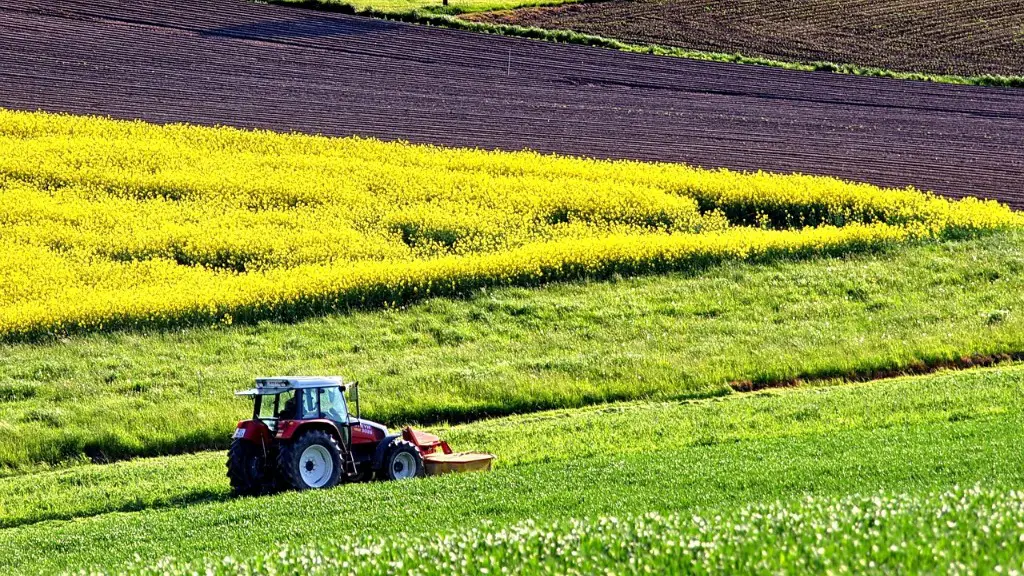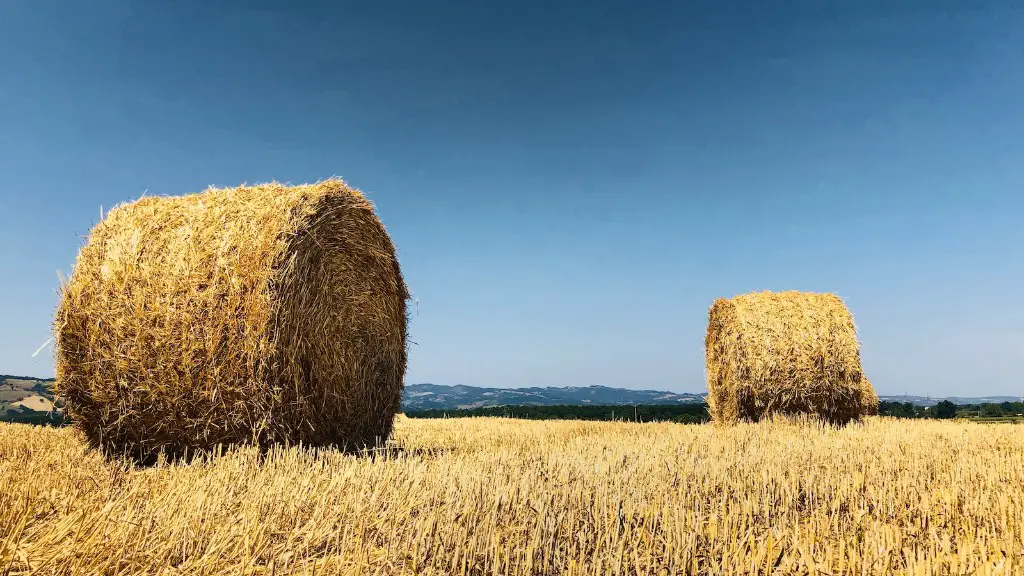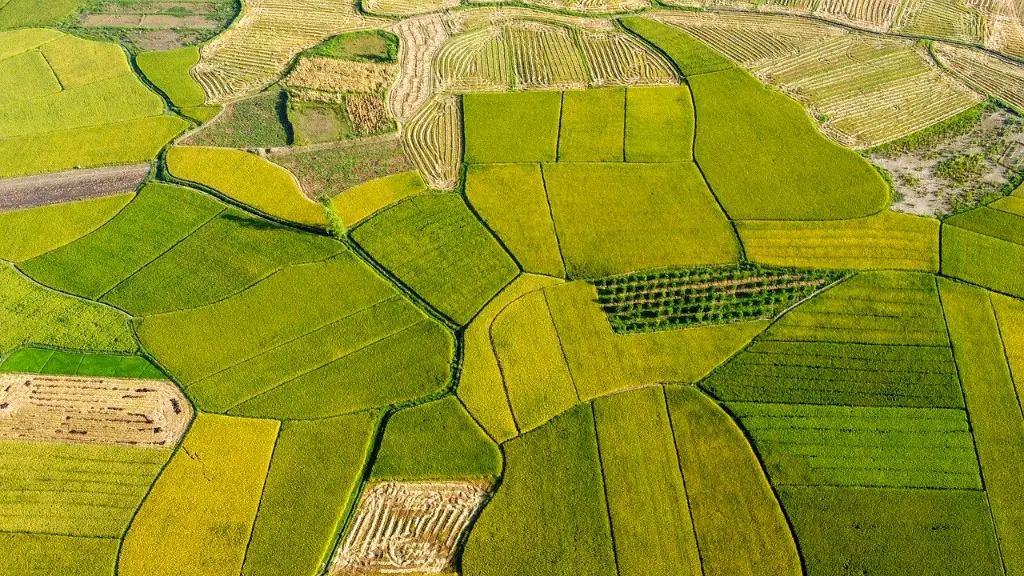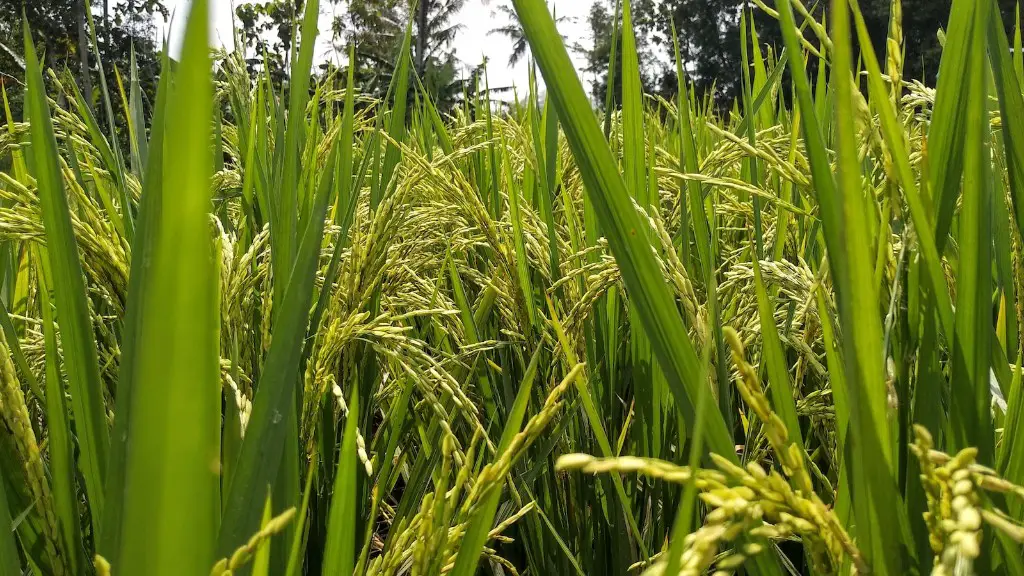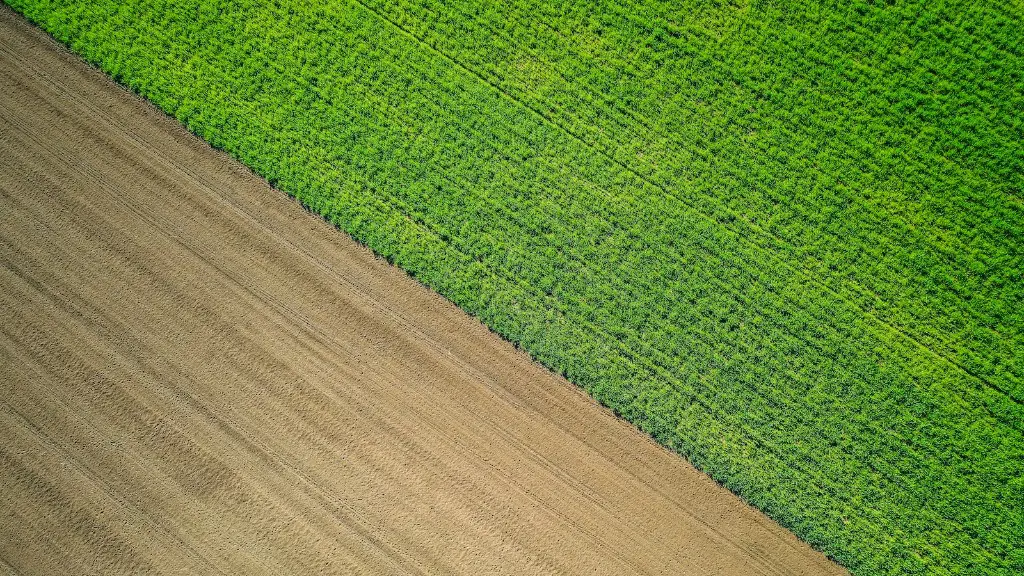Organic agriculture is a system of farming that is designed to work in harmony with nature, using practices that are environmentally friendly and sustainable.
Organic agriculture is good for the environment because it reduces pollution and the use of harmful chemicals. It is also good for the farmer, as it is a less intensive form of farming that is easier on the body. Furthermore, organic agriculture is good for the consumer, as it results in food that is free of pesticides and other harmful chemicals.
Organic agriculture is good for many reasons. It is better for the environment, as it does not use synthetic pesticides or fertilizers. Organic agriculture also supports wildlife and promotes a more biodiverse ecosystem. Furthermore, organic agriculture is healthier for both animals and humans, as it does not use antibiotics or growth hormones. Finally, organic agriculture is more sustainable than conventional agriculture, as it uses less energy and water.
What are 5 pros of organic farming?
Organic farming is a type of agriculture that relies on natural processes, rather than the use of synthetic inputs, to enhance crop production. Organic farming can have many benefits for the environment, including reducing soil erosion, promoting sustainable development, and improving water and air quality. Additionally, organic food is often healthier and tastier than conventionally-grown food, and the organic farming process is typically less expensive than other methods of agriculture. Organic farming can also generate income through exports, and create jobs in both the farming and processing sectors.
Organic food has many benefits that are often overlooked. Here are some of the benefits of organic food:
1. Organic produce contains fewer pesticides.
2. Organic food is often fresher because it doesn’t contain preservatives that make it last longer.
3. Organic farming tends to be better for the environment.
4. Organically raised animals are NOT given antibiotics, growth hormones, or fed animal byproducts.
These are just a few of the benefits of organic food. When you choose organic, you are choosing a healthier option for yourself and for the environment.
What are 2 positives about organic farming
Organic farming systems offer many advantages over conventional farming, including yields that match or exceed those of conventional farming after a five-year transition, superior performance during drought years, and greater profits for farmers. In addition, organic farming uses 45% less energy than conventional farming and leaches no toxic chemicals into waterways.
Organic farming yields many benefits, including preservation of soil’s organic composition. Organic farmers utilize practices that help maintain and improve fertility, soil structure and biodiversity, and reduce erosion. These practices also help reduce the risks of human, animal, and environmental exposure to toxic materials.
How does organic farming impact the environment?
Organic agriculture is a form of agriculture that relies on techniques such as crop rotation, green manure, and compost to maintain soil fertility, rather than the use of synthetic fertilizers and pesticides.
Organic agriculture has been shown to lead to higher soil quality and reduced nutrient and pesticide leaching compared to nonorganic agriculture. These impacts are due to the fact that organic agriculture relies on sustainable soil management practices that help to build and maintain soil health. In addition, organic agriculture may also lead to a higher provision of ecosystem services and reduced soil erosion compared to nonorganic agriculture. However, more research is needed to address these impacts.
Here are the top 10 reasons to choose organic foods today:
1. Avoid chemicals
2. Benefit from more nutrients
3. Enjoy better taste
4. Avoid GMO
5. Avoid hormones, antibiotics and drugs in animal products
6. Preserve our ecosystems
7. Reduce pollution and protect water and soil
8. Preserve agricultural diversity
9. Support sustainable farming practices
10. Help reduce the overall environmental impact of the food system
What is the positive impact of organic foods?
Organic production not only helps reduce public health risks, but also provides food that is rich in nutrients. This is due to the fact that organic foods are grown without the use of synthetic pesticides and fertilizer, which can contaminate food and soil and make people sick. In addition, organic foods are often grown in more natural conditions, which can help preserve their nutritional content.
Organic food production has many advantages, one of which is the restricted use of synthetic pesticides. This leads to low residue levels in foods, reducing exposure for consumers. It also reduces exposure for farm workers and rural populations.
What are 4 advantages of organic sustainable agriculture
Sustainable agriculture is a type of agriculture that is good for the environment. The advantages of sustainable agriculture include reducing costs, controlling air and water pollution, reducing soil erosion, and promoting social equality.
Organic food and sustainable farming go hand in hand. Sustainable farming methods are those that protect our natural resources and the environment, while still being productive. Organic methods are often more sustainable than conventional farming practices, as they minimize the use of harmful chemicals and pesticides. Sustainable farming practices are crucial to the long-term health of our planet, and organic methods are a great way to help achieve this.
Is organic really better for the environment?
Organic farming is better for the environment in a number of ways. First, it involves less pollution, soil erosion, and energy use. Second, eliminating the use of pesticides in farming also benefits nearby birds and animals and people who live close to farms. Third, organic farming generally requires less water than conventional farming. Finally, organic farming typically results in more nutrient-rich soil.
Organic farming is a type of agriculture that relies on natural processes, rather than the use of artificial inputs, such as chemicals. This results in a more sustainable and environmentally friendly approach to farming.
Organic farming has many benefits, including the preservation of biodiversity in the form of soil microorganisms, flora and fauna, and different beneficial insects. It also results in more nutritious food and food security by enhancing the production and productivity of the natural system.
How does organic farming help the economy
Organic agriculture can affect the costs of production in a few ways. In general, organic farmers rely on resources recycled on-farm and on management practices rather than on purchased fertilizers and pesticides. This can lead to a reduction in some costs, such as those associated with purchasing these inputs. Additionally, organic agriculture often relies on more labor-intensive practices, which can raise costs in some cases. However, organic products often sell for a premium, which can offset some of these increased costs.
Organic farming is a more environmentally sustainable form of agriculture than traditional farming. Because organic farming prohibits the use of fossil fuel-based fertilizers and most synthetic pesticides, it has a significantly lower carbon footprint. The production of these farm chemicals is energy intensive, and their use results in the release of greenhouse gases into the atmosphere. As organic farming becomes more widely adopted, it can play an important role in reducing greenhouse gas emissions and mitigating climate change.
What motivates people to buy organic?
Organic foods are those that are produced without the use of synthetic pesticides, hormones, or other artificial chemicals. These foods are often more expensive than their conventional counterparts, but consumers perceive them as being more nutritious, natural, and environmentally friendly.
A number of studies have been conducted on consumer behavior and organic foods, and these have contributed significantly to the development of the organic food industry. While some consumers are willing to pay a premium for organic foods, others are not. However, the overall trend seems to be that more and more people are interested in buying organic foods.
There are a number of reasons why people might choose to buy organic foods. Some people believe that organic foods are more nutritious than conventional foods, as they are not exposed to synthetic chemicals. Others believe that organic foods are more natural and environmentally friendly, as they are produced without the use of harmful pesticides and fertilizers.
Whatever the reasons, it is clear that the organic food industry is growing, and that consumers are increasingly interested in buying organic foods.
I think that people generally believe that organic foods are healthier because they are free of harmful pesticides and other chemicals. I also think that people believe that organic foods have more nutrients than conventionally-grown foods. Lastly, I think that people generally believe that organic foods just taste better.
What are 2 advantages and 2 disadvantages of organic farming
Organic farming has become popular in recent years as consumers become more concerned about the safety of their food and the impact of industrial agriculture on the environment. Organic farmers do not use synthetic pesticides or fertilizers and must comply with strict guidelines set by government or third-party certification organizations.
There are both advantages and disadvantages to organic farming. One advantage is that organic farmers do not use harmful chemicals that can potentially contaminate food and water supplies. Organic farming also supports healthier soil and populations of pollinators such as bees. Another advantage of organic farming is that it does not use genetically-modified food items.
On the other hand, there are some disadvantages to organic farming. One is that organic food items can be more expensive than conventionally-grown items. Another disadvantage is that organic farming can have a higher production cost due to the need for more labor-intensive methods.
1) Agriculture is the main source of raw materials for industry.
2) Agriculture is important to international trade.
3) Agriculture plays a big role in a nation’s revenue.
4) Agriculture provides employment.
5) Agriculture is crucial to a country’s development.
6) Agriculture can help heal the environment.
7) Agriculture goes hand-in-hand with war.
8) Agriculture is a big part of the world economy.
9) Agriculture is a way of life for many people.
10) Agriculture is important to the world.
Conclusion
There are a number of reasons why organic agriculture is considered good. One reason is that organic agriculture does not rely on the use of synthetic fertilizers or pesticides, which can have negative environmental impacts. Additionally, organic agriculture often uses less water and energy than conventional agriculture, and can help to promote soil health. Finally, many people believe that organic food is more healthful and tastes better than conventionally-grown food.
Organic agriculture is good for many reasons. It is better for the environment, it is better for your health, and it supports local farmers.
